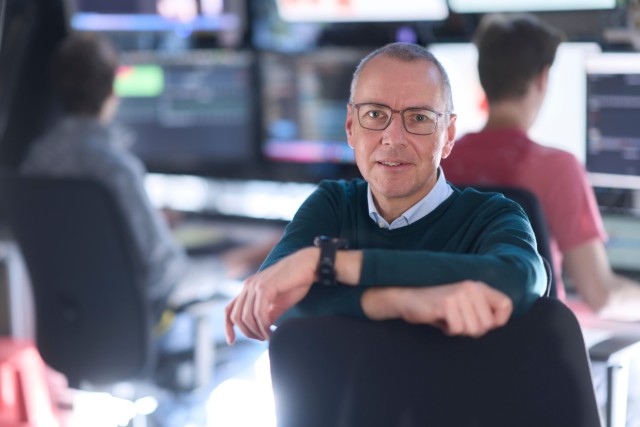23 May 2025
MCQST Cluster of Excellence: A Strong Ecosystem
Here begins the tale of a Munich grassroots movement. Over a decade ago, a handful of Munich quantum physicists came together with the aim not only of understanding the mysterious phenomena of the realm of the tiniest particles, such as entanglement, but also of rendering them useful for practical applications. Immanuel Bloch is one of the founders of this movement.

"Our approach of building a strong ecosystem in Munich paid off right from the start - we have a close community that supports each other and values its roots."
The fact that this decision was made in the international year of quantum 2025, one hundred years after the formulation of quantum mechanics in 1925, gives the DFG funding approval a deep symbolic resonance with the Munich quantum researchers. “Our approach of building a strong ecosystem in Munich paid off right from the start - we have a close community that supports each other and values its roots,” says Bloch. “For a center that continues to grow, this is the foundation for success.”
Like its predecessor, the Cluster of Excellence MCQST-2 will seek to investigate the scientific foundations of complex quantum systems, enabling a broadening of the base for quantum technologies 2.0, as Bloch likes to call them. The cluster will be structured into six research areas going forward, ranging from basic research to applications. Quantum information theory is equally as important as quantum cryptography, the quantum simulation of solid-state systems, and the development and researching of novel quantum materials, quantum sensors, and the building blocks of a quantum network. “The cluster really does cover all areas of quantum science, which is unique in the world. This is the foundation for true progress, as we are building on a strong ecosystem of all partners involved,” says Bloch, who is a spokesperson for MCQST alongside Barbara Kraus from the Technical University of Munich (TUM) and Ignacio Cirac from the Max Planck Institute of Quantum Optics.
Read the entire article on the LMU website.